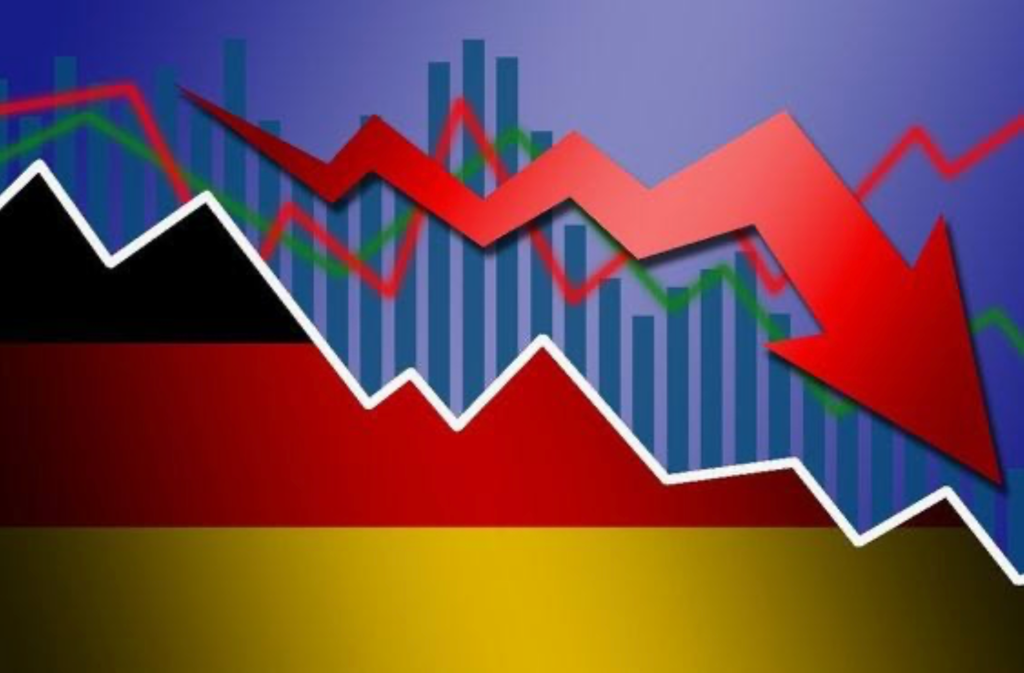By: Sasha Aiev
In an era of startup proliferation and huge private valuations, the public markets seem to be at odds with the times.
The month of September was a rough one for New York City-based real estate firm WeWork. When the company first revealed intentions to go public over a month ago, its valuation was placed at $47 billion based off large investments from holding companies and banks. This $47 billion quickly turned into $30 billion, then $20 billion, and then no billion as the company cancelled its IPO due to pressure from lead investor Softbank.
This story received plenty of coverage in the media, and most pundits offered two potential explanations for WeWork’s collapse following press releases confirming the company’s plan to go public. First, heightened scrutiny of the company on the part of journalists and bankers revealed questionable management by CEO Adam Neumann, in terms of stock management and distribution of equity amongst his employees. Second, potential investors were deterred from taking positions in the IPO after close examination of WeWork’s company financials disclosed low net profits and substantial debts, neither of which supported an overall valuation in the tens of billions of dollars.
In terms of mismanagement, it is true that Adam Neumann made some poor executive decisions, such as selling stock options prior to the IPO taking place and taking questionable measures to increase his personal stake in the firm. Moreover, it is also true that the company had a staggering price-to-sales ratio of 27 with their initial valuation of $47 billion, while reporting a net profit of only $200 million in 2018 due to $1.6 billion in losses. Nonetheless, a valuation decrease of $27 billion is very significant and these facts do not single-out WeWork as a particularly bad investment, as net losses and irrationally high P/E ratios are somewhat commonplace in the modern business world. There are plenty of other companies with less-than-ideal management and financials which are doing well on the public markets. Amazon’s stock, for instance, has increased 50% from the beginning of 2018 despite having a current P/E ratio of around 80 (which has gone north of 300 in the past), and Dunkin Brands’s stock has grown 23% this year while maintaining a P/E above 25. These are just a few cherry-picked examples, but a few minutes of research will reveal plenty more companies whose stocks have performed fantastically in spite of precariously-high P/E ratios or excessive net losses.
Another consideration is that WeWork is only one of many disastrous IPOs in recent months. Uber, for instance, is currently trading 30% below its initial IPO price from May 2019. Slack’s stock has dropped nearly 40% in the four months that it has been public, Fiverr International’s stock has fallen 34% since its June 2019 IPO, and Peloton (a celebrity-endorsed fitness and personal health brand which went public just two weeks ago) has seen its stock fall more than 10%. The keen reader will note that all four of these 2019 IPOs involved established, popular private companies with huge customer bases, and all four were highly anticipated going into this year. Uber’s stock performance embodies this disparity best, as Uber has been able to disrupt the entire taxi and transportation industry while simultaneously struggling to gain value on the public markets.
Beyond Meat is one notable exception, as the company’s stock is currently trading at 110% above its initial asking price, and was at +251% at its peak.
However, if you look at the list of all IPOs in the second half of 2019, you’ll notice that the majority currently trade below their initial offered price. Not the great majority, but definitely the majority.
So maybe WeWork’s failed IPO was really just a reflection of poor management and business strategy, or perhaps it was a reflection of a greater problem in the world of private companies going public.
If the latter is true, then why is there such a disparity between private valuations and public stock performance, and what does this mean for the market at large?
The answers vary depending on who you ask. The New York Times claims the poor IPO performance stems from years of private investors in Silicon Valley “spoiling” emerging companies; in other words, there has been a startup bubble in the U.S which is slowly beginning to deflate. CNBC claims investors are becoming more conservative when it comes to companies selling stories of potential growth and earnings, rather than selling figures of current growth and earnings (WeWork is a clear materialization of this theory). Others postulate that it has nothing to do with the companies themselves, and has everything to do with an increasingly bearish market due to trade conflicts with China and imminent Federal Funds Rate hikes.
It could also very well be a product of all three theories. It seems investors are being more cautious about companies with dubious valuations backed by insufficient earnings, and this could be a product of greater apprehension in the markets. During time periods when the market is pervaded with positive sentiment, as it was in 2016 or 2013, investors tend to be less focused on carefully scrutinizing company fundamentals than they are on not missing out on widespread profits. In years like these, companies like WeWork would fare much better as they could ride the wave of market growth. So, when hot, trendy companies like WeWork or Uber or Fiverr fail to perform on the stock market, this is a signal that the stock market is not growing blindly. There’s certainly more nuance involved, but this is a general truth which cannot be ignored when analyzing the current market atmosphere.
While this is going on, the startup bubble is still alive and well, as there are around 200 startup unicorns globally with a combined valuation of $861 billion. This valuation seems great, until you realize that this year’s IPO class is the least profitable in terms of earnings since 1999, according to CNBC.
So, what this all tells us is that there currently exists a clear disagreement between the private market and the public market. Now, the question for investors to ponder is which market will follow which.
Works Cited:
Cover Photo Source: https://images.markets.businessinsider.com/image/5d8ce3572e22af03cd1fab25-1856/2019-09-26t142433z568498632rc1dfad91d90rtrmadp3peloton-ipo.jpg
Meisenzahl, M. (2019, September 24). WeWork: Timeline of Events Since the Company Filed to go Public. Businessinsider. Retrieved from https://www.businessinsider.com/wework-ipo-timeline-delayed-ceo-adam-neumann-scandals-explained-2019-9
Rodriguez, S. (2019, September 9). Softbank Asks WeWork to Shelve its IPO. CNBC. Retrieved from https://www.cnbc.com/2019/09/09/softbank-asks-wework-to-shelve-ipo-reports-ft.html
Hernbroth, M. (2019, July 19). Ahead of its IPO, WeWork’s Adam Neumann Reportedly Sold Shares he Owned in the Company and Took Loans Worth $700 Million. Inc. Retrieved from https://www.inc.com/business-insier/wework-adam-neumann-sold-portions-stake-company-loans-700-million-ipo.html
Trainer, D. (2019, August 27). WeWork is the Most Ridiculous IPO of 2019. Forbes. Retrieved from https://www.forbes.com/sites/greatspeculations/2019/08/27/wework-is-the-most-ridiculous-ipo-of-2019/#5b0a9b5e1ad6
Olson, A and Bussewitz, C. (2019, August 14). WeWork: Finances Show Revenue Growth, Big Losses. USA Today. https://www.usatoday.com/story/money/investing/2019/08/14/wework-ipo-finances-show-revenue-growth-big-losses/2012403001/
Gurusheets.com. (2019, October 13). Amazon.com Fundamental Data [Data File]. Retrieved from https://www.gurufocus.com/term/pettm/AMZN/PE-Ratiottm/Amazon.com-Inc
Macrotrends.net. (2019, October 11). Dunkin’ Brands PE Ratio 2010-2019 [Data File]. Retrieved from https://www.macrotrends.net/stocks/charts/DNKN/dunkin-brands/pe-ratio.
Sraders, A. (2019, July 15). These are the Upcoming IPOs to Watch in 2019. Fortune. Retrieved from https://fortune.com/2019/07/15/2019-biggest-upcoming-ipos/
IPOscoop.com. (2019, October 13). Last 100 IPOs [Data File]. Retrieved from https://www.iposcoop.com/last-100-ipos/
The New York Times Dealbook. (2019, September 30). Dealbook Briefing: Here’s Why Public Markets are Punishing Tech IPOs. The New York Times. Retrieved from https://www.nytimes.com/2019/09/30/business/dealbook/public-markets-tech-ipos.html
Bursztynsky, J. (2019, October 7). Ex-Nasdaq CEO Bob Greifeld: Recent IPOs Remind Him of Dot-Com Bubble. CNBC. Retrieved from https://www.cnbc.com/2019/10/07/ex-nasdaq-ceo-bob-greifeld-recent-ipos-remind-him-of-dot-com-bubble.html
KCI Research Ltd. (2019, October 11). Too Much Pessimism in the Stock Market. Seeking Alpha. Retrieved from https://seekingalpha.com/article/4296154-much-pessimism-stock-market
CB Insights. (2018, August). The Complete List of Unicorn Companies [Data File]. Retrieved from https://www.cbinsights.com/research-unicorn-companies
Rooney, K. (2019, September 18). This Year’s IPO Class is the Least Profitable of Any Year Since the Tech Bubble. CNBC. Retrieved from https://www.cnbc.com/2019/09/18/this-years-ipo-class-is-the-least-profitable-of-any-year-since-the-tech-bubble.html






Leave a comment